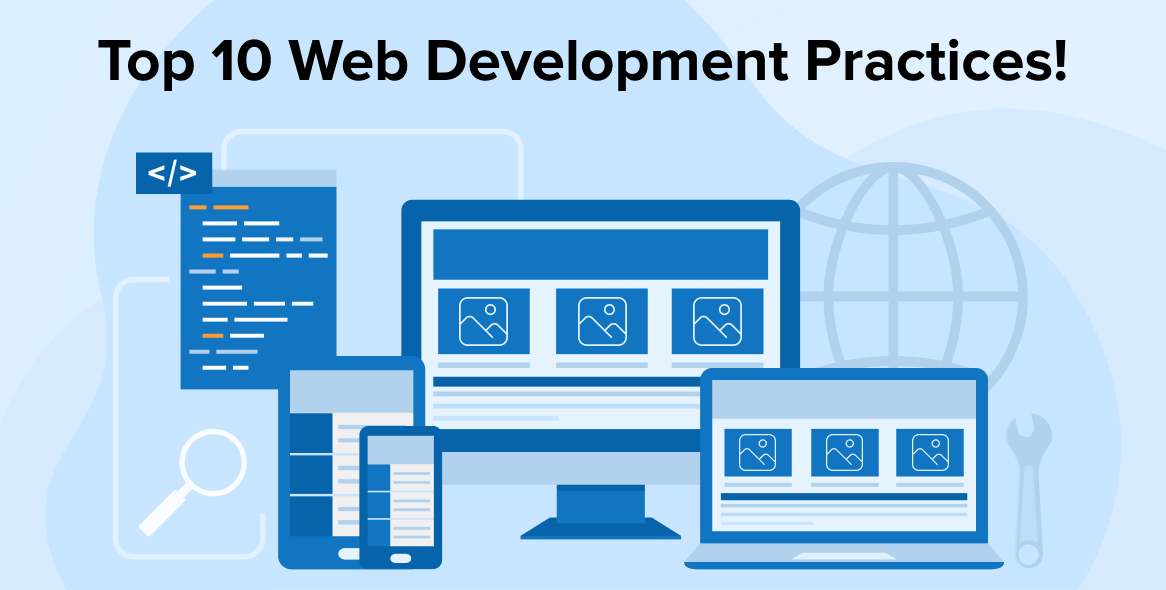CPOpen: Your Gateway to Current Affairs
Stay updated with the latest trends and insights across various topics.
Web Development: Where Code Meets Creativity
Explore the art and science of web development, where innovative code transforms creative ideas into stunning websites. Dive in now!
The Art of Responsive Design: Balancing Aesthetics and Functionality
The Art of Responsive Design is a crucial aspect of modern web development, where balancing aesthetics and functionality can significantly impact user experience. Responsive design allows a website to adapt seamlessly across various devices and screen sizes, ensuring that content remains accessible and visually appealing. According to Smashing Magazine, employing flexible grids and layouts, as well as using CSS media queries, can help achieve a harmonious blend of beauty and usability. By prioritizing a mobile-first approach, designers can create interfaces that captivate users while maintaining ease of navigation.
Moreover, achieving a successful responsive design involves understanding user behavior and how users interact with their devices. It’s essential to consider both performance and visual elements when designing responsive layouts. Techniques such as responsive images and scalable vectors can enhance both the functionality and aesthetic appeal of a website. Remember, a well-balanced design not only draws users in but also keeps them engaged longer, ultimately improving SEO rankings and overall site performance.

Understanding Frontend vs. Backend: Where Does Your Passion Lie?
Understanding the difference between frontend and backend development is crucial for anyone venturing into the world of web development. Frontend developers focus on the visual aspects of a website, creating the layout, design, and interactivity that users see and interact with. This includes using languages like HTML, CSS, and JavaScript to bring a site to life. In contrast, backend developers handle server-side programming, managing the database, server, and application logic that operates behind the scenes. Their work ensures that everything runs smoothly and efficiently, but users typically do not see the backend work directly.
So, where does your passion lie? If you enjoy creating visually appealing interfaces and enhancing user experience, frontend development might be your calling. However, if you prefer dealing with logic, data, and the inner workings of applications, backend development could be the right fit for you. Both paths offer unique challenges and rewards, and combining skills in both areas can lead to a well-rounded skill set known as full-stack development, putting you in high demand in the tech industry.
10 Essential Web Development Tools Every Creative Should Know
In the ever-evolving field of web development, having the right tools is crucial for every creative looking to bring their visions to life. Whether you're a seasoned developer or a beginner, understanding which tools to leverage can significantly enhance your productivity and the quality of your work. Here are 10 essential web development tools that every creative should know:
- HTML5 - The backbone of web content, allowing for rich multimedia and better semantic structure.
- CSS3 - Essential for styling applications and websites, giving them a polished look.
- jQuery - A powerful JavaScript library that simplifies HTML document traversing and event handling.
- Git - A vital version control system, allowing teams to manage changes to source code efficiently.
- npm - A package manager for JavaScript, enabling the installation and management of libraries and dependencies.
- Visual Studio Code - A lightweight yet powerful source code editor with extensive extensions.
- Adobe XD - A versatile tool for UI/UX design, enabling rapid prototyping.
- Figma - A collaborative interface design tool that allows real-time editing.
- W3Schools - An excellent resource for learning web technologies and frameworks.
- Stack Overflow - An invaluable community resource for troubleshooting and finding solutions in coding.